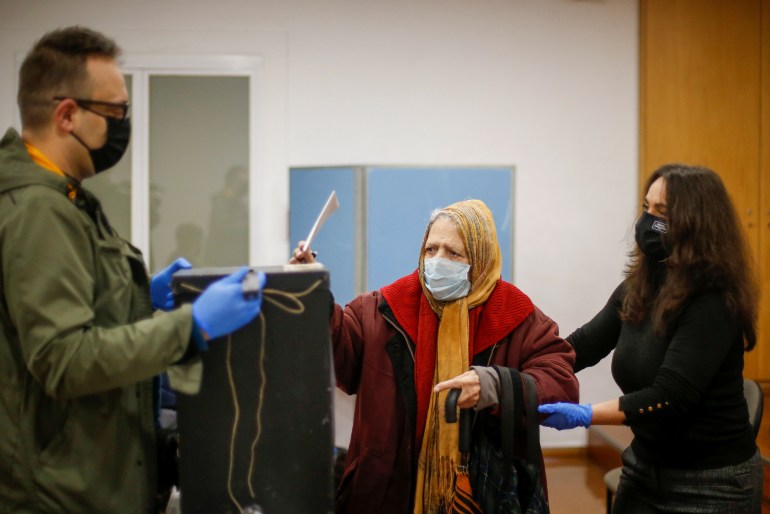Portugal President Rebelo de Sousa re-elected, abstentions surge
Centre-right incumbent known for his easy-going manner has won a second and final five-year term.

Marcelo Rebelo de Sousa has won a second term as Portugal’s president, in an election marked by record abstentions as the country battles a third wave of coronavirus cases.
The 72-year-old former leader of the Social Democratic Party, known for his warm persona and habit of taking selfies with supporters, won 61 percent of the vote, improving on the 52 percent he secured in 2016.
Keep reading
list of 3 itemsPortugal to hold presidential election as COVID cases surge
Portugal’s health system near collapse as COVID cases surge
Still, 60 percent of voters abstained – the highest figure in Portuguese history – in part because 1.1 million voters from abroad were added to the electoral register for the first time, but also because hundreds of thousands of people are in quarantine.
“The most urgent of tasks is to combat the pandemic. This is my priority, in total solidarity with parliament and government,” Rebelo de Sousa said in his victory speech.
Socialist candidate Ana Gomes came second with 13 percent, while right-wing populist Andre Ventura came third with 12 percent. A close ally of European far-right parties, Ventura dubs himself ‘anti-system’.

The polls took place as the number of COVID-19 deaths broke records for the seventh day in a row on Sunday, at 275. The number of people in hospital is also at an all-time high.
Portugal has the world’s highest rates of new daily infections and deaths per 100,000 population, according to data from Johns Hopkins University.
Down to earth
Rebelo de Sousa has worked closely with the centre-left minority Socialist government, supporting its pandemic efforts. The president holds a largely ceremonial role but can veto certain laws and decree states of emergency, a power Rebelo de Sousa has deployed often since the pandemic began, taking parliament’s lead.
He also has endeared himself to the Portuguese with his easy-going manner. Photographs taken by passers-by of him in public places, such as one last year of him queuing up at a supermarket, routinely go viral.
With the country in lockdown, the election campaign featured none of the usual flag-waving rallies, but restrictions on movement were lifted for polling day.
Almost two-thirds of Portuguese thought the election should have been postponed because of the pandemic, a poll last week by research institute ISC/ISCTE showed.
Authorities increased the number of polling stations and allowed for early voting to reduce crowding. In other precautions, mask-wearing voters were asked to bring their own pens and disinfectant to polling stations.
“Since the date of the elections wasn’t changed, I decided to come early,” said Cristina Queda, 58, who arrived at her polling station in Lisbon as soon as it opened to “avoid groups and queues”.
Casting his vote at a Lisbon school, centre-left Prime Minister Antonio Costa acknowledged the grave stage of the pandemic, but said that “everything was done for people to be able to exercise their democratic right to vote”.